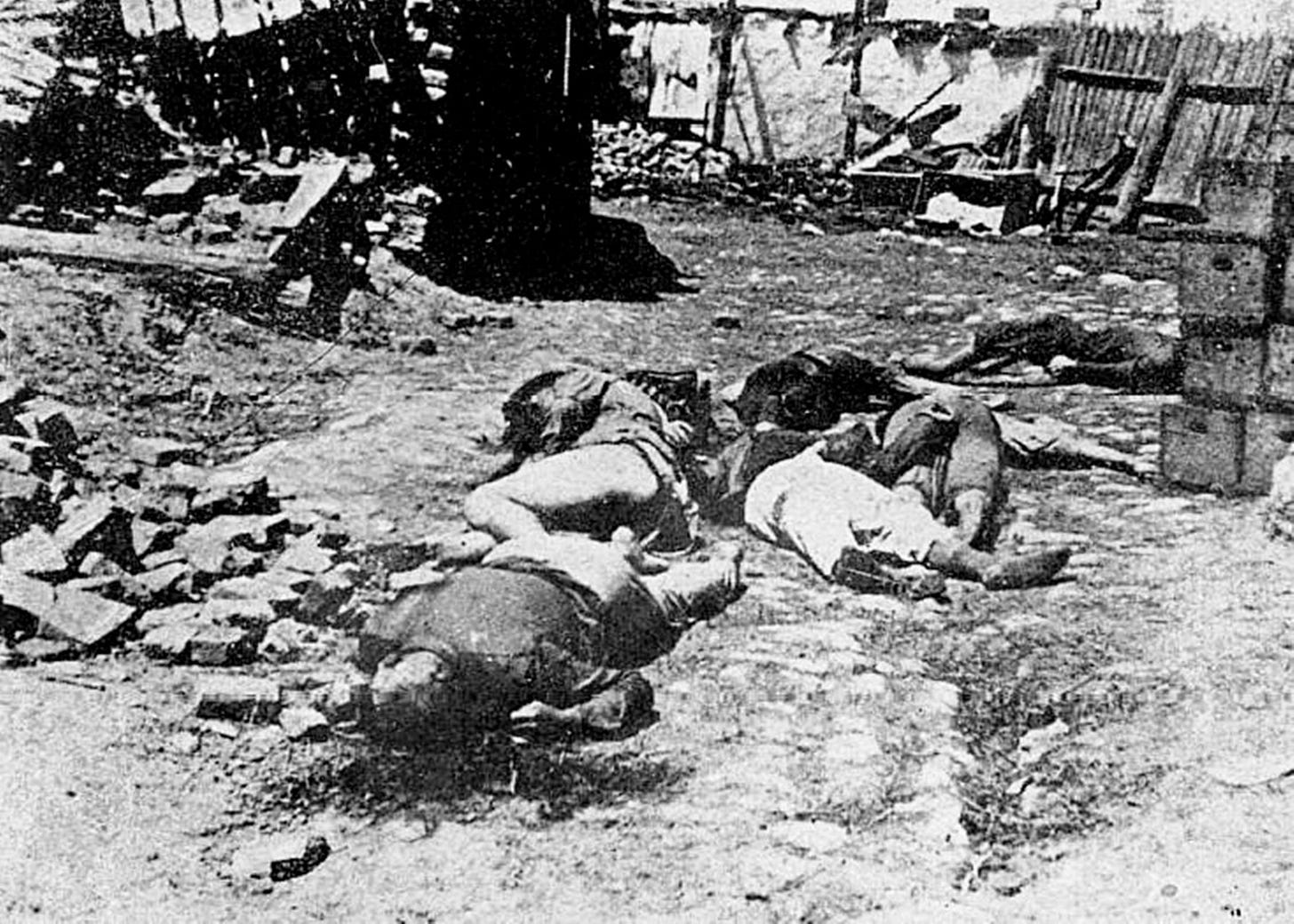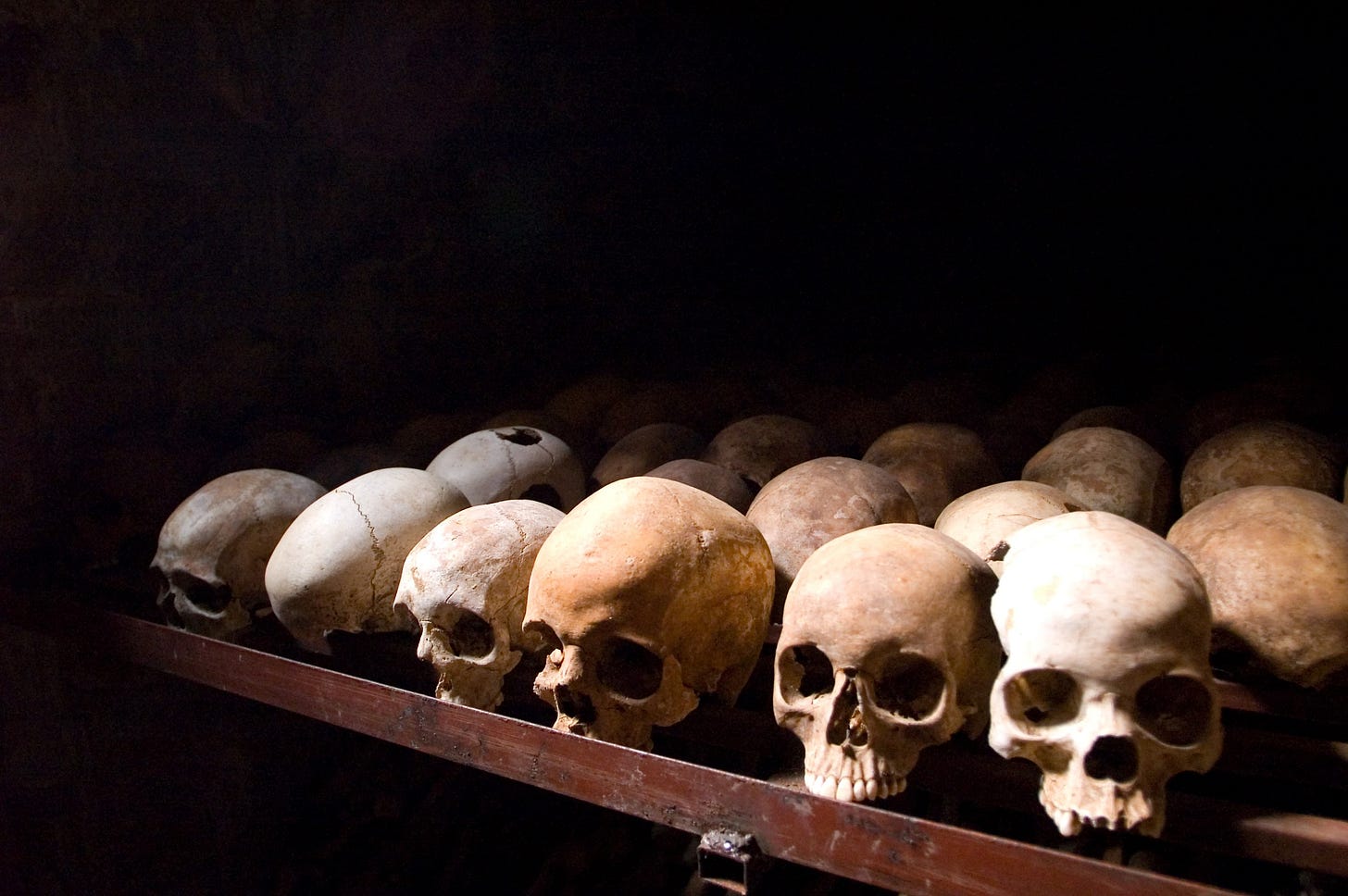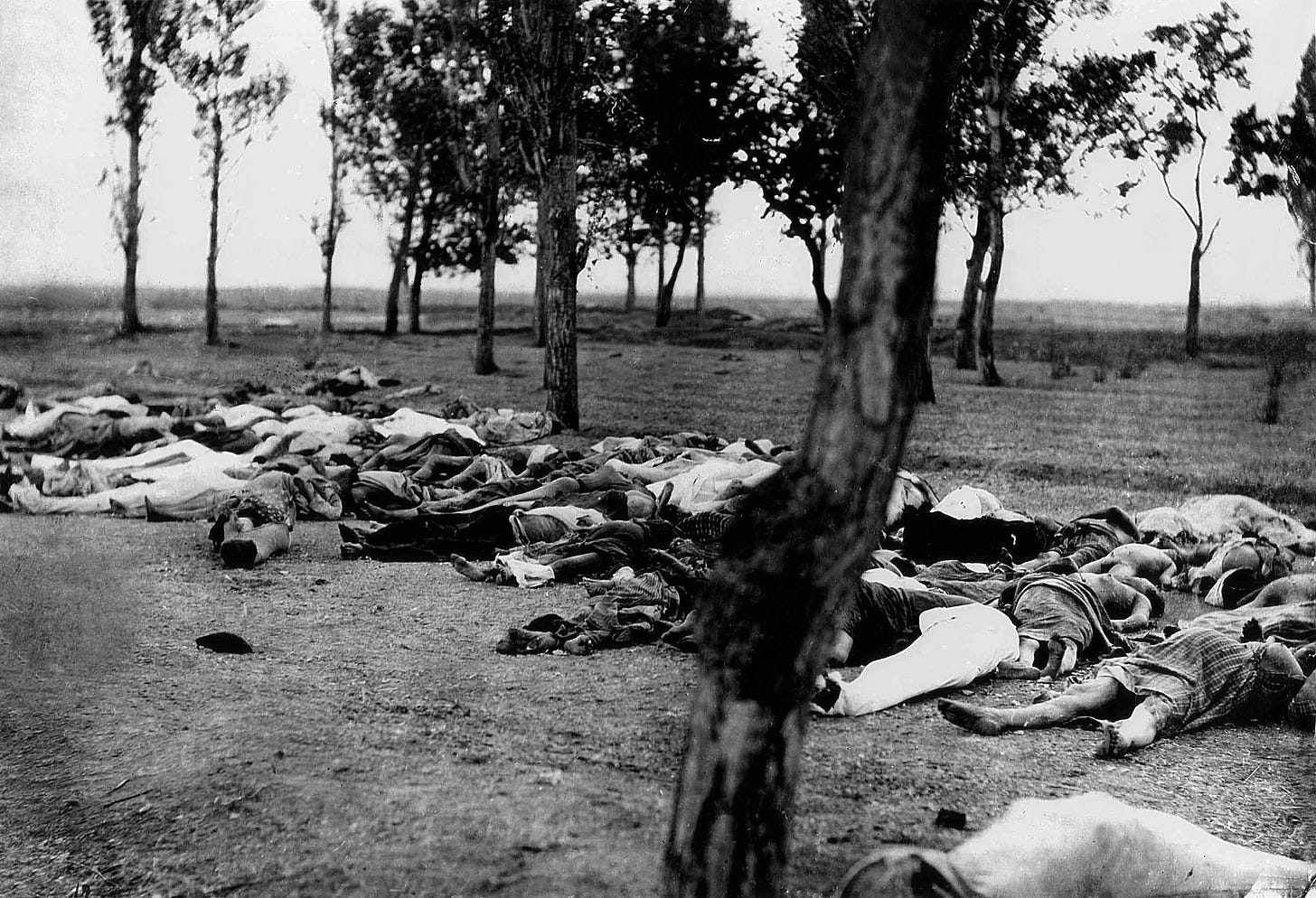The New Genocide®
Or, what happens when a large number of people acquiesce out of political convenience.
Please consider supporting our mission to help everyone better understand and become smarter about the Jewish world. A gift of any amount helps keep our platform free of advertising and accessible to all.
This is a guest essay written by Jamie Paul.
You can also listen to the podcast version of this essay on Apple Podcasts, Google Podcasts, and Spotify.
In my previous essay (No, winning a war is not genocide.) I argued that characterizing Israel’s actions in the war against Hamas as “genocide” was not merely inaccurate, but also indicative of a broader ignorance about history and war.
The response to the piece has been as furious as it has been vindicating. Amid the torrent of invective, snark, and un-subscriptions, there were attempts at counterargument. Hundreds and hundreds of people reached out to explain why Israel’s actions in Gaza do, in fact, constitute genocide.
In so doing, these critics have succeeded only in underscoring the troubling ignorance I was criticizing. To read through my correspondence was to witness a kind of linguistic hyperinflation in real time, where the inconveniently specific concept of “genocide” expanded into a near-infinite catch-all to be flung at any military actor one does not like to score cheap political points.
Here is what genocide meant until five minutes ago:
“U.S. federal law defines genocide as ‘violent attacks with the specific intent to destroy, in whole or in part, a national, ethnic, racial, or religious group.’”1
Definitions vary slightly from source to source, and many legal scholars and historians disagree about its precise meaning, but broadly speaking, genocide refers to mass killing done with the intent to wipe out a particular people. The term was coined during the Holocaust as a way to distinguish crimes of such unimaginable magnitude from other kinds of atrocities.

Based on the more than 3,500 comments I have received across platforms, we apparently have a new and improved definition. Things that are genocide now include:
Any civilian deaths
Dropping bombs that kill civilians
The use of unguided bombs
“Indiscriminate” bombing (“Indiscriminate” has undergone the same hyperinflation.)
Lopsided casualty ratios (i.e. one side suffers more deaths than the other)
Lopsided casualty ratios where one side is a state and the other a non-state actor
A militarily superior force fighting a militarily inferior force
A wealthier country bombing a poorer country or territory
Killing 10,000 or more people (regardless of intent or context)
Destroying large numbers of buildings
Destroying infrastructure
Destroying cultural artifacts or culturally important sites
Any war crime
Any violation of international law
Ethnic cleansing (which itself has been redefined as “any time people have to flee from their homes”)
Obstructing aid or supplies (i.e. a siege or blockade)
Prioritizing military victory over maximal avoidance of civilian casualties
Destroying the “concept” of a Palestinian people (i.e. saying Palestine is not a country, even though it is not)
Anything a U.S. soldier protests via self-immolation
Observant readers whose knowledge of the world extends beyond Al Jazeera infographics and TikTok videos will have noticed that this New Genocide® seems to have been reformulated in a way that simply means “war.” Indeed, by this new definition, almost every war in modern history, and a great many prior, now qualify either as genocide or attempted genocide.
Of the 234 wars fought between 1700 and 1987 for which civilian casualty figures exist, an estimated 44 million civilians were killed. In World War II alone, 780,000 German civilians were killed by Allied forces, and another 2.3 million in Eastern Europe resulting from Soviet invasion.
The destruction of homes, businesses, infrastructure, and cultural centers are a routine feature of war, as is resource scarcity. Civilians, including women and children, have died in every war ever fought. These are basic facts of war. That does not make it good, but it also does not make it genocide — because, if all of these things are genocide, then every war is genocide, and genocide no longer means anything.
Many commenters also expressed the view that, while Israel’s actions may not be genocide, they are nevertheless evil and/or morally comparable, and we should not care what people choose to call it. This is the slippery slope of linguistic hyperinflation. It happens not when a term begins to be abused by a few, but when a much larger number of people acquiesce out of political convenience.
This is how “conservative” becomes “white supremacist,” how “disagreeing with me” becomes “making me feel unsafe,” and how “free speech” becomes “hate speech” and then “stochastic terrorism.”
I would be surprised if, by year’s end, we were not hearing about “stochastic genocide.” In all of this, the real and serious distinction that the concept of genocide was created to delineate has been erased.
Other commenters side-stepped the whole pesky business of “words having meanings” to appeal to a newfound authority in the form of the United Nations’ Court of Justice. In January, this body confusingly said both that it is “plausible” that Israel is committing genocide, and also that Israel must take steps to prevent genocide.
To be clear, this court — which is peopled by representatives of such bastions of legal scholarship and jurisprudential expertise as China, Somalia, Uganda, India, and Lebanon — has no actual authority. Like the UN more generally, the International Court of Justice may sound lofty, but it is as toothless as a 90-year-old meth fiend, and about as trustworthy.
As a reminder, the UN is the organization that gives human rights violators a seat on human rights councils, and gives dictatorships a democratic vote on the affairs of nations. International cooperation is a wonderful thing, but the UN, in practice, is, and has long been, a complete joke — not a moral authority.
Perhaps the most unhinged aspect of all of this is that we do not actually have any reliable information for Palestinian casualty figures outside of the Gaza Health Ministry, which is run by Hamas. They are known not to differentiate between civilian and militant casualties, and have already been caught in blatant lies.
On October 17th, 2023, in the early days of this conflict, there was an explosion at the Al-Ahli Arab Hospital in Gaza. Hamas and the Gaza Health Ministry immediately said that Israel had bombed the hospital, killing 500. Third-party investigations later uncovered that the rocket had struck the parking lot, not the hospital itself; that the casualty figure was closer to 100, not 500; and that the rocket was fired from inside the Gaza Strip, likely from the Hamas-allied group Palestinian Islamic Jihad.
The Gaza Health Ministry lied about every single aspect of the incident. This is why it is so irresponsible to take their word at face value. When the Gaza Healthy Ministry says X number of Palestinians have been killed by Israel, we know that they are conflating militants and civilians, including people killed due to friendly fire, and then inflating it even more for good measure.
Genocide is the single-most serious crime that exists. Accusations should rely on vastly better information.
It is also worth asking, why is this conflict, above all others, subjected to such microscopic scrutiny? Why are onlookers by the millions — many so ordinarily ignorant of and uninterested in history, warfare, or geopolitics that they seem shocked to discover the truth in Sherman’s words, “War is hell.” — becoming obsessive, blow-by-blow moral litigators of this war, and only this war?
Why are people, who overwhelmingly cannot name the “river” or the “sea” between which they want to see “Palestine” freed (and Israel erased), parachuting into a situation they do not understand and trying to apply their own domestic culture wars onto a foreign conflict? Why are many of the same folks accusing Israel of genocide also Holocaust deniers or Holocaust agnostics?
It is all rather curious.
War is, indeed, hell. And much of what goes on during war is horrible, which is why preventing wars in the first place is so important. When Hamas broke the ceasefire to massacre, rape, and mutilate 1,200 people on October 7th — and kidnap some 250 others — they initiated a war.
Every day that passes without Hamas’ surrender — every day that they continue fighting and firing rockets — Hamas is continuing it. The death of civilians in any conflict is a tragedy, and there is always more than can be done to minimize it.
We can be saddened, horrified, appalled, or angry about it. But it happens in every war, especially in urban warfare. Pretending this equals genocide (and just in this one instance) is grotesque, incredibly dishonest and, yes, antisemitic.
“19. Genocide (18 U.S.C. 1091).” U.S. Department of Justice.




Thank you, Jamie, for spelling out the distinction and for calling out those who use the term for the Hamas war. I’m hanging onto this one so I can quote you now and then, if that is okay.
Astute and articulate Jamie..... I will be filing this one